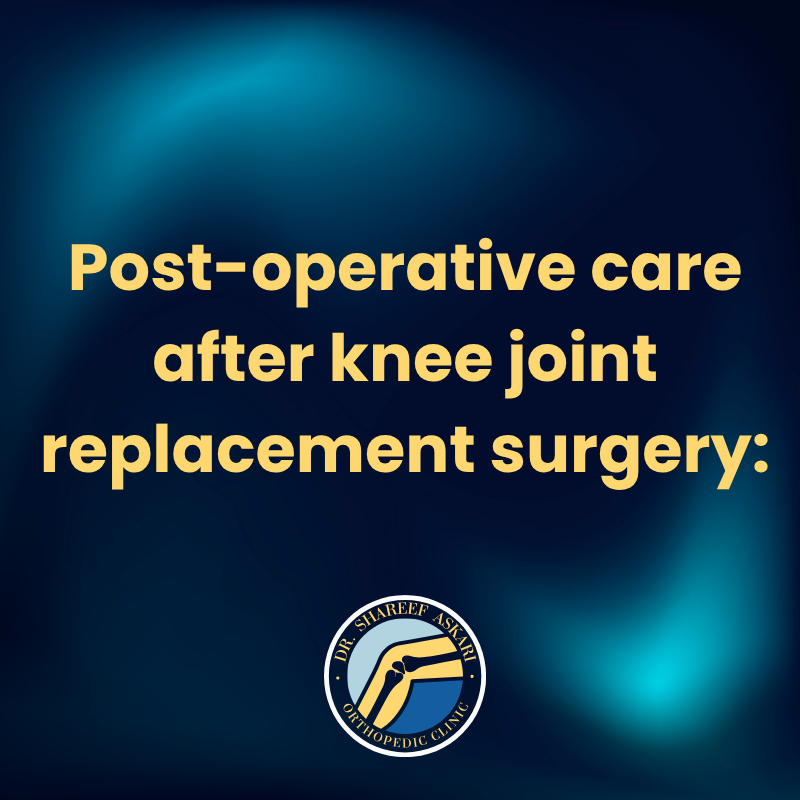A complete guide to faster recovery and return to daily life. **Total Knee Replacement (TKR)** is one of the most successful orthopedic surgeries, helping to reduce pain, improve mobility, and enhance the quality of life for patients with advanced osteoarthritis or severe injuries. However, the success of this surgery is not solely dependent on the surgeon’s skill; proper post-operative care plays a crucial role in the recovery process. ### Essential Post-Operative Care for Knee Replacement Surgery: #### 1. Pain Management and Medication – Pain is natural in the first few days after surgery. – Doctors prescribe pain relievers, anti-inflammatory medications, and antibiotics if needed. – Taking medications as prescribed is essential for a smooth recovery. #### 2. Surgical Wound Care – The bandage should remain clean and dry. – Dressing changes should follow the doctor’s instructions. – Any signs of discharge, redness, or fever should be reported immediately. #### 3. Preventing Blood Clots – After surgery, there is a risk of blood clot formation in the legs. – Doctors may prescribe blood-thinning medications. – Anti-embolism stockings or compression devices may be used. – Early movement (as guided by the doctor) helps prevent complications. #### 4. Starting Physiotherapy – Physical therapy is a vital part of recovery, usually starting within the first day or two after surgery. – Goals include strengthening muscles around the knee, restoring range of motion, and teaching proper walking techniques using a walker or cane. #### 5. Daily Activities and Walking – Patients can usually walk with assistance (walker or cane) within 24 to 48 hours after surgery. – Stair climbing should be minimized in the early weeks. – Sitting on a high chair and using a raised toilet seat are recommended. #### 6. Proper Nutrition – Eating protein-rich foods, fresh vegetables, and staying hydrated aids in wound healing and prevents constipation. – Reducing salt intake and consuming anti-inflammatory foods like fish, turmeric, and ginger is beneficial. #### 7. Driving and Returning to Work – Driving is usually discouraged for about six weeks post-surgery. – The timeline for returning to work depends on job type; light jobs may be manageable within 6–8 weeks. #### 8. Long-Term Care – Avoid high-impact activities such as running or jumping. – Maintain a healthy weight to reduce stress on the joint. – Regular follow-ups with an orthopedic specialist help monitor prosthetic joint function. Knee replacement surgery offers a chance for a **pain-free life**, provided that patients **follow post-operative care with discipline and patience**. Collaboration with doctors and the medical team is key to a **successful recovery**.

Dr. Ali Sharif Askari, surgeon and specialist in joints and bones in Kish Island



بدون دیدگاه